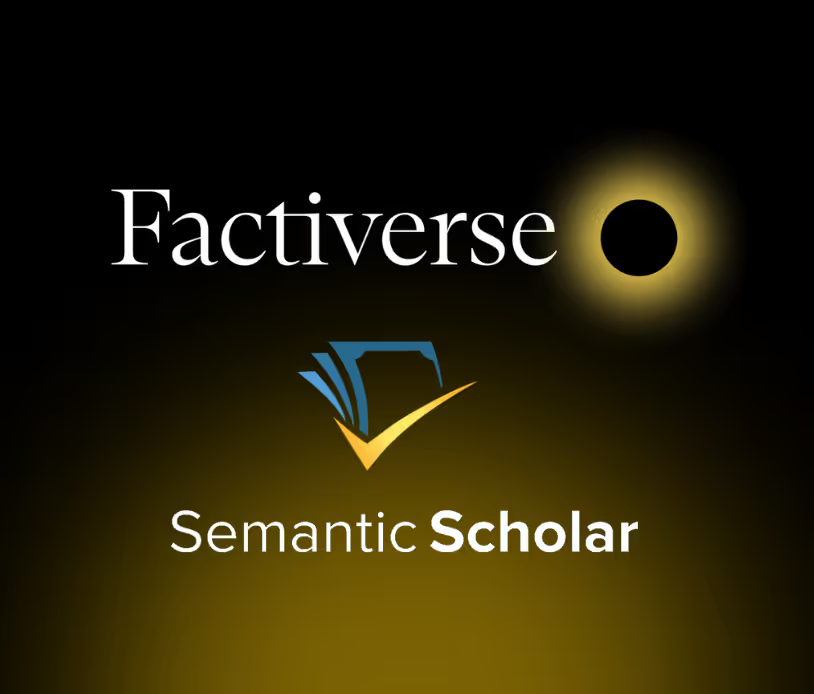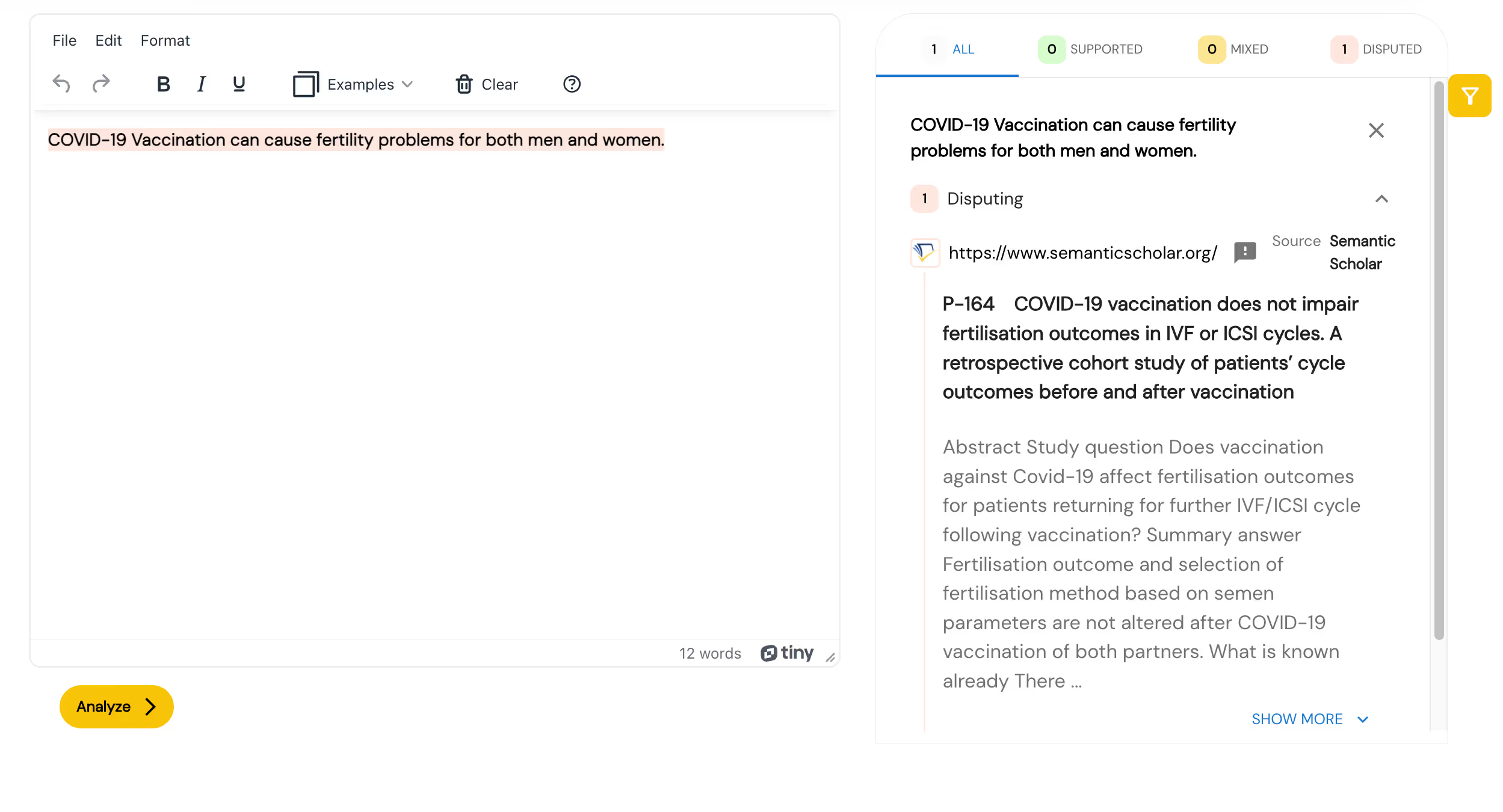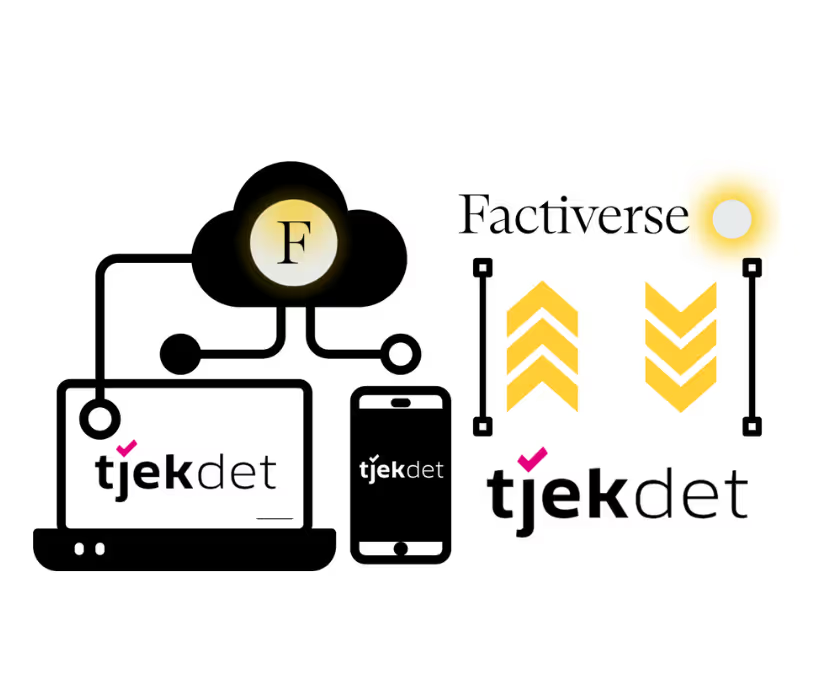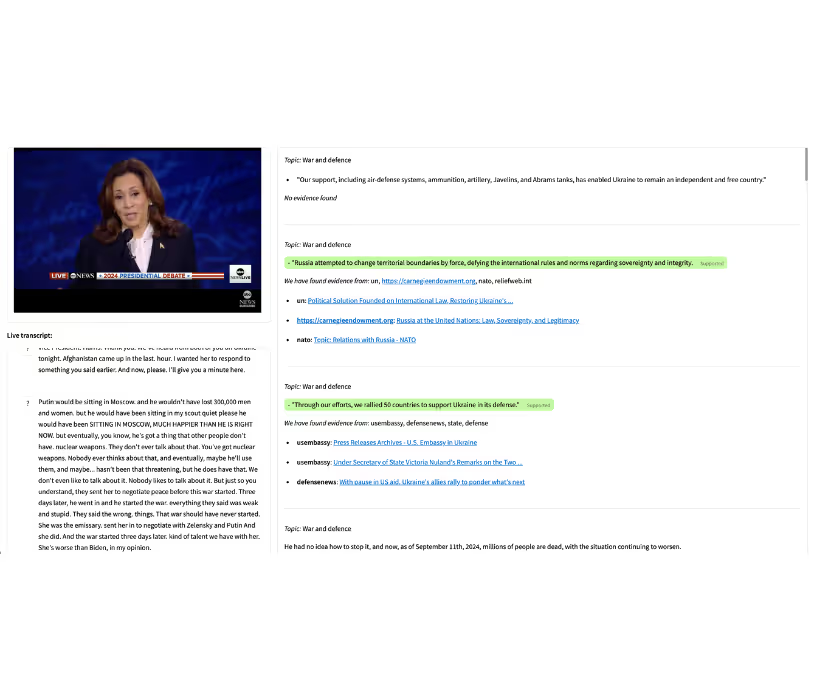

In an era where misinformation spreads rapidly online, fact-checking has never been more crucial. The newest product update is that we have integrated Semantic Scholar, a comprehensive scientific literature database of over 216 million scientific articles, into our search engine. It provides a credible source for enhancing the fact-checking pipeline at Factiverse. This article delves into how the Semantic Scholar APIs boost your fact-checking efforts.
Semantic Scholar, crafted by the Allen Institute for AI, represents a milestone in digital research tools for scientific literature. Accessible at Semantic Scholar, this AI-powered, free resource has revolutionised how researchers engage with scientific publications. It offers sophisticated search functionalities and tailored recommendations, streamlining the research experience.
Accessible at Semantic Scholar API (https://www.semanticscholar.org/product/api), this API provides a gateway to Semantic Scholar's expansive collection of over 216 million scientific papers. It empowers users to extract comprehensive details from these papers, such as abstracts, author information, citations, and links to the original article. It facilitates the selection of authoritative articles pertinent to specific topics.
Factiverse's API for claim detection, available at Factiverse API for Claim Detection, begins by identifying check-worthy claims in a text. The stance-detection API, detailed at Factiverse Stance Detection, then thoroughly searches for relevant evidence. This search spans multiple platforms, including Google, Bing, Wikipedia, and Factiverse's own FactiSearch database, which hosts a wealth of previous fact-checks (available at https://factisearch.ai). The API meticulously analyses the gathered evidence, extracting pertinent snippets using Factiverse's advanced models. These models then employ credible sources to ascertain whether the evidence supports or contradicts the identified claims.
Integrating Semantic Scholar API with Factiverse
Factiverse has enhanced its stance-detection capabilities by incorporating the Semantic Scholar API into its search tools. While the Semantic Scholar API sometimes yields articles not directly related to the query, the abstracts of these articles are crucial. They are used to calculate the semantic similarity between the claim and the article's abstract through neural embeddings. Articles from Semantic Scholar that are both highly relevant and extensively cited are prioritised in the final stage of fact verification, ensuring a more robust and reliable fact-checking process.
This integration marks a significant advancement in Factiverse's ability to verify facts accurately and efficiently, harnessing the power of AI and extensive scientific literature databases.
Sign up for Factiverse and find sources from multiple search engines and databases ranked by credibility, not SEO. Try it yourself at https://editor.factiverse.ai/ (Free trial, no credit card requirements).
Example on editor.factiverse.ai
Here is an example of a claim: “COVID-19 Vaccination can cause fertility problems for both men and women.” verified using the Factiverse AI Editor, and it returns a scientific article published in Human Reproduction Journal (Oxford, England) from 2022 refuting the claim.











































































.avif)















